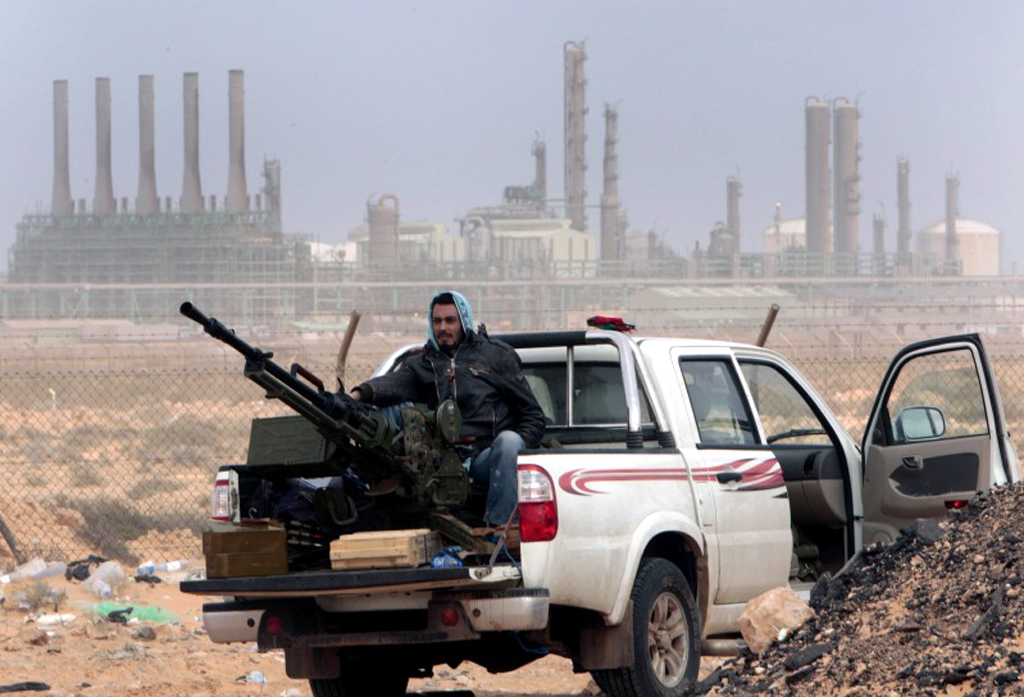Some 15 top diplomats including US Secretary of State Hillary Clinton meet Friday in Istanbul to discuss a political solution to the conflict in Libya while coordinating aid for the rebels.
The fourth meeting of the Libya contact group will also include British Foreign Secretary William Hague, his French counterpart Alain Juppe and Franco Frattini of Italy.
France, which has played a key role in rallying international support for the rebels fighting to topple Libyan dictator Moamer Kadhafi, on Tuesday said a political solution to the fourth-month-old conflict could be within reach.
Juppe said there had been contacts with Kadhafi’s regime and that the veteran Libyan was ready to step down after 42 years in power, but the US cautioned many of the diplomatic signals coming from Tripoli have been contradictory.
The prospect of Kadhafi’s peaceful departure will head the list of topics at the Instanbul talks, a Turkish diplomat said.
The rebels’ de facto foreign minister, Mahmoud Jibril, will attend the meeting, where diplomats will discuss the future aid — both military and financial — that could be sent to the rebels in the coming weeks.
China and Russia both declined invitations to attend the meeting.
The two permanent members of the United Nations Security Council have been highly critical of NATO’s ongoing military raids on pro-Kadhafi targets.
Moscow has insisted that NATO has violated the terms of the Security Council resolution that authorised the bombings, saying the civilian protection mandate of the text has been misused by NATO to justify regime change.
The meeting, which was set to start at 0830 GMT, comes as the rebel forces on Thursday solidified their positions near Al-Assabaa, a strategic city 80 kilometres (50 miles) south of the capital Tripoli.
The rebels also announced that they were preparing to attack Brega, a petroleum hub currently controlled by the regime in the east of the country.
“Yesterday, we got to within six kilometres (four miles) of Asabah, but most of our forces have returned” to Gualish, where rebels reversed a bid by loyalist forces on Wednesday to recapture the desert hamlet, said local commander Abdel Majid Salem.
Asabah is strategically located 80 kilometres (50 miles) south of the capital, serving as the last barrier between the rebels and the garrison town of Gharyan.
Salem said the bulk of the rebels had returned to “secure the area” around Gualish, some 17 kilometres (11 miles) further south, but that some fighters remained outside Asabah.
On Wednesday, soldiers loyal to Kadhafi caught rebels off guard and attacked Gualish, which the insurgents captured a week earlier, and seized most of it.
But reinforcements poured in from villages and drove the loyalists out, chasing them up the road toward Asabah.
At least eight rebels were killed and around 30 wounded in Wednesday’s fighting, said doctors at the hospital in Zintan, the key rebel base in the mountains southwest of the capital.
The eight killed, all but one of them young men, were buried on Thursday in Zintan, an AFP correspondent said. Mourners loosed off Kalashnikov automatic weapons fire as the bodies were lowered into the graves.
In eastern Libya, rebels were poised to launch an offensive on the oil town of Brega, hoping to dislodge dug-in loyalist troops, rebel military sources told AFP.
One rebel fighter was killed and five more were wounded on Libya’s eastern front line on Thursday, a doctor said in the rebel-held town of Ajdabiya, 80 kilometres (50 miles) from Brega.
“We are preparing to enter Brega. The attack will come soon,” said one rebel official.
Brega, nestled at the southeastern tip of the Gulf of Sirte, has changed hands multiple times during Libya’s four-month-old civil war.
“We have been focused on the west of the country, but now we will move,” said another rebel military source who also asked not to be named.
In a speech to boost morale, Kadhafi on Thursday urged his supporters to march on the rebel capital of Benghazi in eastern Libya and to liberate the city of “traitors.”
“The hour of battle has sounded: prepare to march on Benghazi and on (rebel-held) Misrata, and on the mountains of the west,” he said in a message relayed by loudspeaker to supporters in an eastern district of the capital.
“We are here and we will stay here on this ground … I will stay with my people until the last drop of my blood is spilled,” a defiant Kadhafi said.
He also took a swipe at French President Nicolas Sarkozy, who he accused of being a “war criminal” who had stained his country’s history and destroyed its ties with the Muslim world.
Kadhafi’s regime said late on Wednesday that it was seeking to prosecute NATO chief Anders Fogh Rasmussen in Libyan courts for “war crimes” over the alliance’s air strikes since the end of March that had killed more than 1,100 civilians.
Rasmussen insisted great care was taken to avoid civilian casualties.
“I completely dismiss these accusations,” he told journalists in The Hague. “We are extremely careful and cautious in identifying military targets and avoid civilians casualties.”









